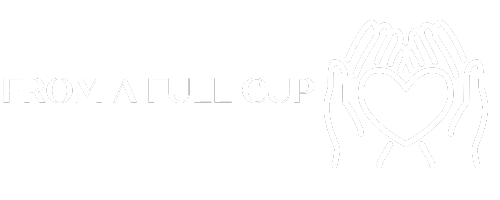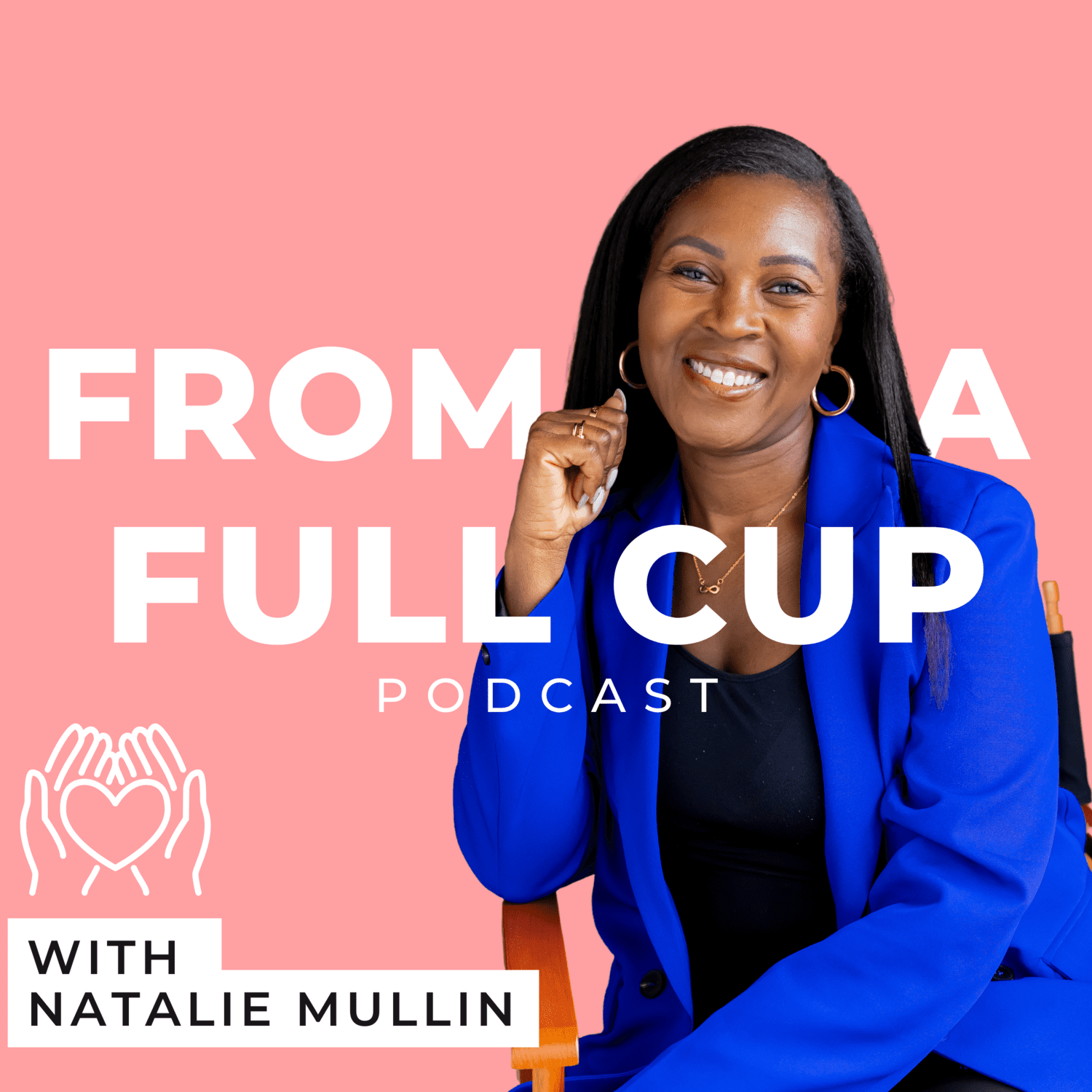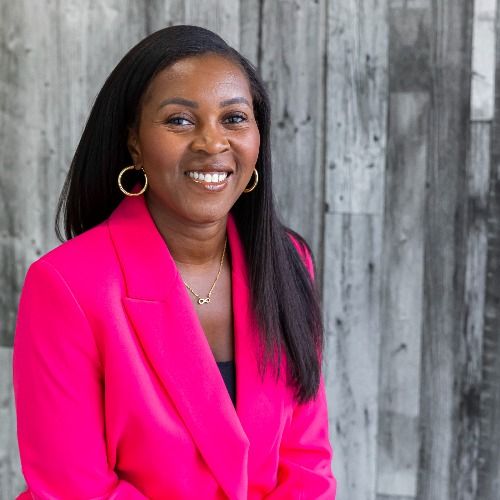S2. E21. The Intersection of Money and Mental Health w. Aseel El-Baba, Toronto's First Financial Therapist
On today's episode, I speak with Aseel El-Baba, Toronto’s first financial therapist, as she shares her views on blending finance with mental health to address the deeper emotional aspects of money management.
In this episode we discuss:
-Aseel's personal story, growing up in a war-torn region and confronting her perceptions of money as tied to corruption and greed
-why even very wealthy people experience scarcity mindset
-the energetics of money and how money amplifies the person you are
-why money dates are something you should add to your schedule immediately
Timestamps:
00:00 Welcome and Introduction to Guest
00:58 Aseel's Journey into Financial Therapy
03:17 Transforming Perspectives on Money
07:16 The Holistic Approach to Financial Wellness
10:11 Exploring the Energetics of Money
13:33 Shifting from Scarcity to Abundance
20:29 Redefining Wealth for a Fulfilling Life
25:12 Legacy and Impact: Changing the World Through Financial Therapy
28:50 Practical Tips for Managing Money Stress
31:25 Connecting with Aseel and Closing Thoughts
Links:
Download Free Wellness Assessment:
https://from-a-full-cup.ck.page/93236e5b48
Book Free Transformative Coaching Session:
https://tidycal.com/nataliemullin/free-discovery-call
Get in touch:
Speaker Bookings:
From a Full Cup is a mental wellness education podcast that teaches women to prioritize their wellness and put themselves first, because you can’t pour from an empty cup.
I'm your host Natalie Mullin , Certified Wellness Educator, Speaker, Facilitator and Teacher. Every Thursday I release a new episode, teaching women how to dream big, take action and move the needle forward in life.
Past episodes
Subscribe to the podcast
Copyright 2025 Natalie Mullin
Transcript
[00:00:21] I really don't know what happened and I apologize, but it's a great conversation and definitely worth listening to. So let's get into it.
[:[00:00:30]
[:[00:00:45] Aseel: Oh, it's a pleasure to be here. Thanks for having me, Natalie.
[:[00:00:55] Natalie: First Financial Therapist of Toronto, which is a huge city. So tell me, how did you get into this line of work? What was your relationship with MoneyLike?
[:[00:01:15] Aseel: Cause it was like very unbearable. I hated money and what I thought it represented, which is corruption and greed and selfishness. But I also came from a single mother household where my family relied on welfare and the food banks to survive in a foreign country because we came from a war zone with nothing and felt that.
[:[00:02:02] Aseel: Would come to talk to me about their investments or debts or savings account or cash flow problems or whatever the issue may be. They were actually talking to me about a much deeper layer around their identity, their regrets, their emotions, their self worth, like, So many layers that this complex topic intertwines with.
[:[00:02:47] Aseel: remains. So I feel like it's in an, I wouldn't say it's an in the infancy stages, although the awareness on it, I think is just starting to like, become really significant as we are in some hot, somewhat turmoil, economic situations right now, where people's awareness on financial well being and mental health is truly becoming significantly a cornerstone of every household conversations.
[:[00:03:37] Natalie: What was your, background or your context for seeing money in that way?
[:[00:04:07] Aseel: There was a lot of association with wealth being a product of. Something associated with crime and the war crimes specifically, be it drug dealing or weapons or being, you know, betraying your country of some sort or something like that. And politicians stealing people's money to accumulate their own wealth and power.
[:[00:05:16] Aseel: You know, help me look at examples in the world where wealth was accumulated without someone having to trade in their values or their moral compass you know, where, where money makes you more of who you are versus changing it, which we grew up hearing with money changes people, I now believe that money just magnifies who you already are.
[:[00:06:01] Aseel: Versus a wanting change and not feeling like you have the means to do so.
[:[00:06:23] Natalie: That and even though, of course, there's still going to be corruption within the Western world, too. It's kind of hidden. So we don't hear about it so much. Or maybe we hear about it, you know, at the high company level, things that are kind of going on. But I think this very personal description of. Even seeing governments or people in power and and how money does corrupt, and can cause a lot of violence and also a lot of harm.
[:[00:07:03] Natalie: And it probably comes from that. And so it must be very interesting as a financial therapist, like, how do you unwind that and, and really unpack that with clients? So what is a catalyst? Like, how do people come to work with a financial therapist?
[:[00:07:37] Aseel: Or it's impacting a specific area, like their relationships, like their marriage, for example, or their business partnerships, or their, you know, business itself is reaching a certain limit and unable to surpass certain ceilings, or it could be dysfunctional behaviors like gambling, compulsive shopping, or certain patterns that are now creating grievances in their situations that is impacting them negatively.
[:[00:08:26] Aseel: That's a financial service role. It's the holistic approach to fight your financial wellness, because it's both your financial and emotional well being. Not just looking at the numbers and the data, not just looking at how you feel, because you could be in denial, but really it's the holistic approach to go.
[:[00:08:55] Aseel: lifelong journey. I'm not alone either, and I reiterate that all the time because it's important to normalize that.
[:[00:09:20] Aseel: So absolutely normalizing that.
[:[00:09:42] Natalie: And because life impacts your financial wellbeing and life is always changing and money is something that we always are using and needing in life. And there's always going to be different polls for it. So I think for us to give ourselves grace, that's what I'm hearing from you to give ourselves grace and just.
[:[00:10:21] Natalie: But you were talking about the energetics of money. So what, what does that mean? How does money have energy?
[:[00:10:53] Aseel: So there's a lot of interesting angles that I had to like, Educate myself on so that I can see money outside just the contrast and the projection that we put on it and see the bigger picture of it, if you will. So I feel like energy money is an energy. It's an exchange and one of the healing and empowering things.
[:[00:11:56] Aseel: And it's important to recognize even time. Your time is a currency. Sometimes when you create an energy exchange between someone, that's where you lead into potentially the barter system. Like, let's say I'm strapped on cash right now, but I have all these access to other resources that I can tap into to create a mutual beneficial agreement with somebody I'm looking or seeking support or service from.
[:[00:12:47] Aseel: And if, when we start noticing patterns in our life, this is data at the end of the day. So what are these patterns telling us about the belief systems that we're carrying that we may have not otherwise uncovered? So there's a lot of data there that helps us uncover them. What's the underlying energy of money at the end of the day that we care about?
[:[00:13:08] Natalie: that sounds like a deep dive that everybody should go into is just trying to understand the underlying energy of money. And so I appreciate art of money, soul of money. Like that's, people don't talk about money in that way, right? Like they just talk about dollars and cents and you know, they just keep it very, I guess on that tangible level, like very black and white.
[:[00:13:43] Natalie: Especially for racialized communities, some immigrant communities, depending on where they came from, what the situation was. It's very hard. It's a generational challenge in terms of moving from that financial mindset of scarcity and lack to one of abundance. So can you maybe talk about. Some ideas of how, how can we do that for ourselves, but also not just the individual, but as the collective, whether in our communities or in our families.
[:[00:14:34] Aseel: We're looking at the relationship we have with these numbers. So when you grew up in a financial resources, but constrained. Emotions and restrictions on the type of relationships you create and how your social life is and You know what you do to protect yourself with all these different things. It's a completely different set of challenges than somebody in a poverty area would grow up facing, but it is scarcity mindset nevertheless.
[:[00:15:54] Aseel: So the work that we focus on is more than individual work. Because we can get really overwhelmed and lost and helpless in tackling the system or going after how we change the system as a whole. But when we start with From Within, what's important is to recognize, how does scarcity show up for you?
[:[00:16:39] Aseel: And these emotions are often unprocessed emotions that are either repressed, denied, you know, shamed. And that's ultimately what needs to be healed because the scarcity mindset along with any other dysfunctional financial behavior is a symptom to a much deeper problem. It's a secondary problem to a primary issue.
[:[00:17:21] Aseel: That then informs the emotion, which then informs the thought, which then informs the behavior. So if the behavior is, Being stuck in a scarcity pattern. There's so many ways in how that shows up in our life. Then we have to obviously track it down to what that full pattern looks like. What's the emotion, what's the thought, what's the body somatic experience.
[:[00:18:09] Aseel: I right now catch myself in real time behaving in a way where I know a year ago I would have behaved differently. And not just behaviorally, I would have thought differently about it. I would have thought differently about it. And this is essentially important to recognize this, this small steps that you take towards that more evolved relationship with money, because it's not always about just multiplying your income or growing the size of your net worth.
[:[00:18:59] Aseel: So there's a shift in how you approach your credit card bill, for example. And that alone highlights A shift from a scarcity to more of an abundance perspective.
[:[00:19:17] Natalie: And I think if we can come at it from that. It's a more holistic way to just look at our money in general, but I think it would encourage us to have a healthier relationship because a lot of times when we're put in boxes and it's like black and white, like, did you do the budget or did you not do the budget?
[:[00:19:47] Natalie: You want to support that little one. It's what matters to you. So if we think of finance or just from like the black and white of like, Oh, well, no, you played it on the credit card and now you're bad. And now you should feel shame and guilty. Guilty. How does that honor? You know, the things that are are more important to us.
[:[00:20:21] Natalie: We talked a little bit about this already in terms of the intersectionality of wellness and how it impacts different areas of our life. For you, if I was to ask you, what is your vision of wealth? What would you describe it as?
[:[00:20:51] Aseel: So one of the things that, for example, is not just, I didn't just talk from the angle of money or not worth, I talked about all different status symbols. Like in the past being fat was a status symbol in the president. It's being skinny. My definition of the future is being healthy that there's a shift there.
[:[00:21:36] Aseel: And however, especially now with AI, taking a lot of our mundane tasks away, we will be left with a lot of room to create and build. And evolve in that direction of being more human. Another thing was in the past, you had servants in the present, you have higher technologies in the future
[:[00:22:26] Aseel: They had nothing to do really. Like you can see in movies, like you can see how their lifestyle were in the present. They're busy. Like busy is the new status symbol. Like the busier you are, the more important you are, the wealthier you are. But I feel like the future is a grounded approach where there's, there's balance, there's rest, there's wellness, there's rejuvenation.
[:[00:23:26] Natalie: I love that definition. I love the idea of the past, the present and the future and just even pausing to recognize how it has shifted, but also the hope of where I can go. Right? So, not that it shifted and that we're stuck, but. Life is still evolving, which means we can evolve, which means our relationships with money can evolve, and our understandings and conceptions of how we frame wealth, even for ourselves, can evolve too.
[:[00:24:12] Natalie: And busyness does not exist there. Like it's not a thing. People are very restful. They go in their own time. If anybody's been on vacation to the Caribbean, they always hear just island time, right? Like nobody's rushing. It comes when it comes, you know, and of course it's frustrating at first, but after a while I was like, Well, why are we rushing?
[:[00:24:46] Aseel: breath as I listen to that.
[:[00:24:48] Aseel: rush for?
[:[00:25:06] Natalie: And I was like, you don't even realize it's just in my body, right? I just pick up and go. And so it was, yeah, it was really interesting. But, Now looking, so you're doing all this amazing work, you're impacting your clients, but also I know you do a lot of community work too, so what is the legacy that you hope to leave behind in this work?
[:[00:25:51] Aseel: Especially because when I look at big problems that we collectively face, be it the war, be it global climate issues, be it racism, you know, just name me any issues that you feel passionate about somehow, some way to boil it down money somewhere in the roots of that. So I truly believe that if I support individuals to heal their relationship with money, I am also contributing.
[:[00:26:43] Aseel: You know, the individual and the systems are naturally correlated when we explore the relationship with money. So that excites me. And that's the legacy I want to leave.
[:Marker
[:[00:27:06] Natalie: And then I spoke about generational mindsets and things like that too. So many of us when we think about money in our relationship with money, it's impacted by the way we grew up, right? So if now we can change our thoughts, then we're changing the thoughts for the next generation as well.
[:[00:27:36] Natalie: But I think if we can shift our mindset to think, what are the possibilities? If more people are doing this kind of work, more people are having these discussions and changing their relationships, what is possible? And that, that definitely is exciting.
[:[00:27:58] Aseel: And If you feel helpless, you're powerless, and you feel frozen. So the idea is to create momentum in whichever direction you feel is more readily available for you, and that's often your own life. That's all you have control over at the end of the day, for now, for the starting point.
[:[00:28:31] Natalie: And I think sometimes, again, we have to give ourselves grace and, and just focus on relationship, focus on community, and, You know, leave the rest, leave the rest of the things you can't control. Just, just let them be because there's already stress in the world. So we, we don't have to take it all on for ourselves.
[:[00:28:57] Aseel: of the tools I love is money dates, which is proactively scheduling, A very intentional time to sit down and do your money tasks, be it paying your bill, be it reflecting on your money situation, be it talking about money with your partner or your boss, or just strategizing your budgeting for your household, whatever the case may be.
[:[00:30:21] Aseel: So if we take a step back and go to the root of how these things start, then it really starts with regulating your emotion. Regulating your nervous system and engaging in these money tasks in a much more calm, connected, and regulated fashion. So I really recommend proactively scheduling time, being intentional about it, incorporating mindfulness techniques to approaching your money.
[:[00:30:52] Natalie: Yeah, I think money dates are a great idea. I don't do them all the time, but it should be a part of my regular practice. And what I do, and I think what you said is about being intentional about it. Because sometimes you can open up your bank account, you might not like what's going on. But if you've already, you know, prepared yourself you know, you're just going in it.
[:[00:31:25] Natalie: Asil, I want you to tell the listeners, how can they find you? How can they learn more about your work? How they can connect with you?
[:[00:31:49] Aseel: And by subscribing, you'll be getting Not just tools and tips around the attachment style pieces, but we're constantly creating content to support people on their journey. So that's the best way to stay in touch with us is subscribing to our mail list. You can also follow conscious economics on Instagram conscious economics.
[:[00:32:17] Natalie: Awesome. I'm going to go check out that quiz. That sounds interesting. All the links for Aseel will be in the show notes. Aseel, thank you so much for coming on the show and sharing your wisdom.
[:


